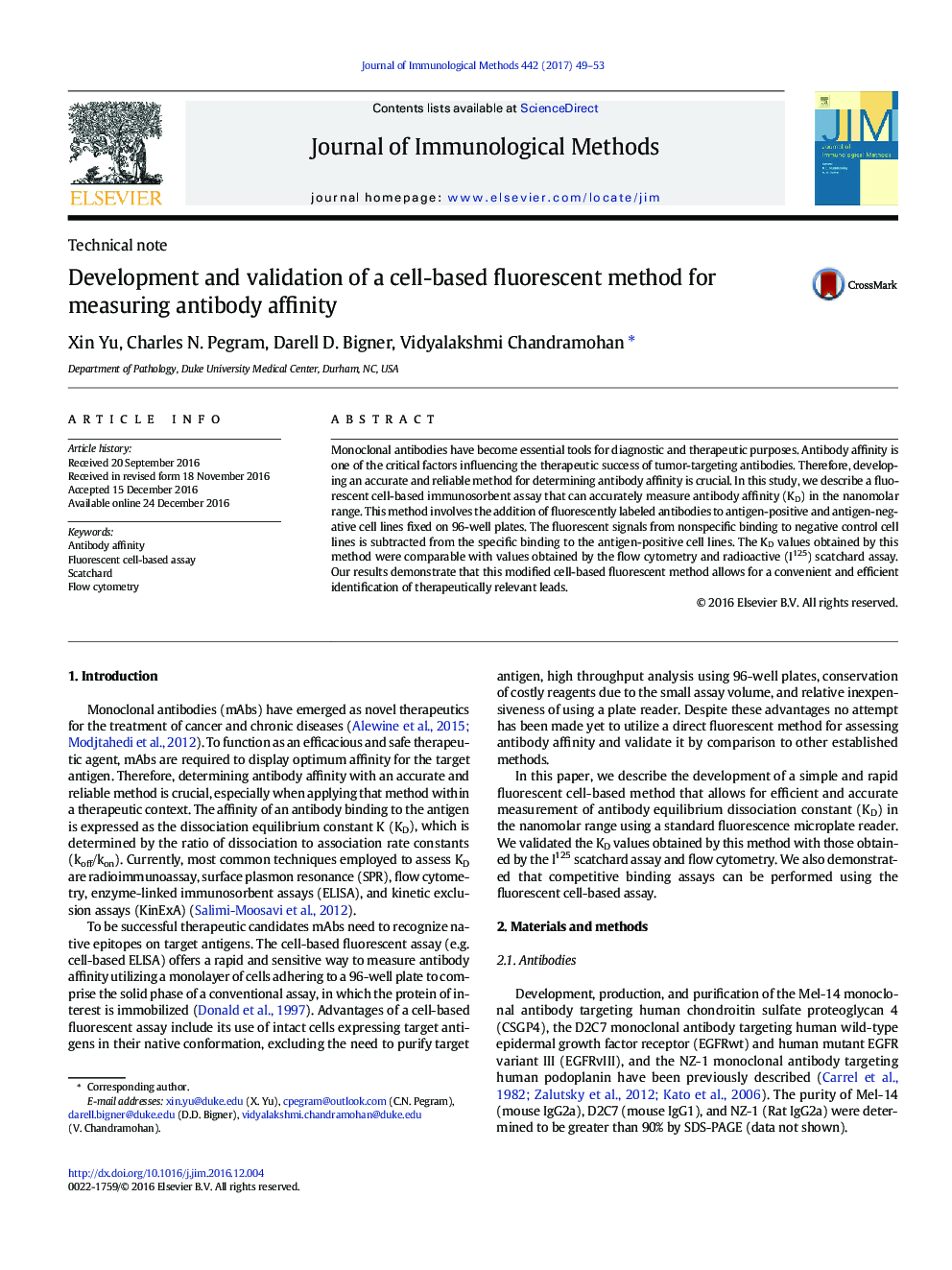| Article ID | Journal | Published Year | Pages | File Type |
|---|---|---|---|---|
| 5522045 | Journal of Immunological Methods | 2017 | 5 Pages |
Monoclonal antibodies have become essential tools for diagnostic and therapeutic purposes. Antibody affinity is one of the critical factors influencing the therapeutic success of tumor-targeting antibodies. Therefore, developing an accurate and reliable method for determining antibody affinity is crucial. In this study, we describe a fluorescent cell-based immunosorbent assay that can accurately measure antibody affinity (KD) in the nanomolar range. This method involves the addition of fluorescently labeled antibodies to antigen-positive and antigen-negative cell lines fixed on 96-well plates. The fluorescent signals from nonspecific binding to negative control cell lines is subtracted from the specific binding to the antigen-positive cell lines. The KD values obtained by this method were comparable with values obtained by the flow cytometry and radioactive (I125) scatchard assay. Our results demonstrate that this modified cell-based fluorescent method allows for a convenient and efficient identification of therapeutically relevant leads.
